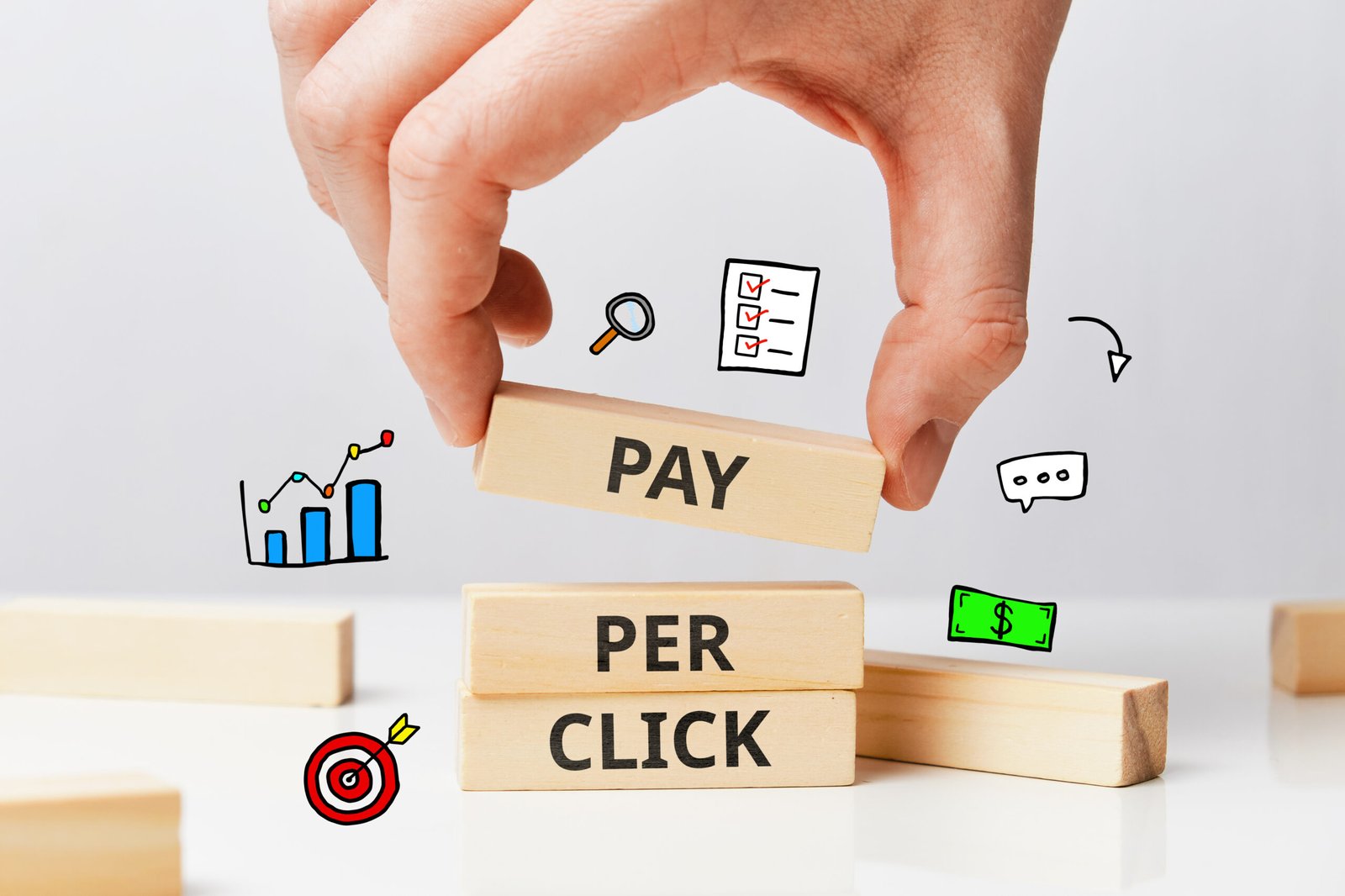
The digital marketing landscape is constantly evolving, and businesses are always looking for effective ways to reach their target audience. Among the many strategies available, Pay-Per-Click (PPC) advertising stands out as one of the most powerful methods to drive immediate traffic, increase brand visibility, and generate leads. Unlike organic marketing, which takes time to show results, PPC advertising benefits businesses by delivering almost instant outcomes.
At Marketing Scalers, a professional digital marketing agency in India, we have seen firsthand how PPC in digital marketing helps businesses grow. Whether you’re running an e-commerce store, a local business, or a multinational company, leveraging the advantages of pay per click advertising can significantly improve your online presence and revenue. This article will provide a detailed look at the top 10 benefits of pay per click advertising, helping you understand why it is a crucial part of any marketing strategy.
What is PPC Advertising?
PPC (Pay-Per-Click) advertising is a digital marketing model where businesses pay a fee each time someone clicks on their ad. Instead of waiting for organic traffic, PPC in digital marketing gives businesses instant visibility on search engines and social media platforms. Whether it’s Google Ads, Facebook Ads, or LinkedIn Ads, PPC allows brands to target specific audiences, control budgets, and measure performance in real time. It’s one of the fastest and most effective ways to attract potential customers and drive conversions.
How Does PPC Advertising Work?
PPC works through an auction-based system where advertisers bid on keywords related to their business. When a user searches for those keywords, the search engine ranks ads based on bid amount, ad relevance, and quality score. If the ad wins the auction, it appears at the top of search results or social media feeds. Businesses only pay when someone clicks the ad, making it a cost-effective strategy. With proper optimization, PPC can deliver high ROI by reaching the right audience at the right time.
Top 10 Benefits of PPC Advertising
1. Immediate Traffic and Faster Results
One of the most significant pay per click advantages is its ability to generate instant traffic. Unlike SEO, which requires months of effort to rank on search engines, ads pay per click campaigns start working as soon as they go live. This makes PPC an excellent option for businesses that need quick results, such as startups looking for initial traction or seasonal businesses capitalizing on a short-lived opportunity. For example, if you are launching a new product or offering a limited-time discount, PPC advertising benefits ensure that your potential customers see your offer right away. The ability to quickly test and optimize campaigns further enhances the efficiency of PPC.
This is especially useful for:
- New businesses that need fast exposure
- E-commerce stores running time-sensitive promotions
- Seasonal businesses looking to attract more customers
2. Highly Targeted Advertising
One of the biggest advantages of pay per click advertising is the level of targeting it offers. With PPC, businesses can define their audience based on various parameters, including:
- Demographics – Age, gender, income level, and more
- Location – Country, city, or even a specific radius around a business
- Device Type – Mobile, desktop, or tablet users
- Time of Day – Ads can be shown when your audience is most active
- Interests & Behaviors – Past browsing activity, online behavior, and purchase history
Unlike traditional advertising, where businesses rely on mass exposure, PPC benefits ensure that your ads are shown to the right audience at the right time, maximizing conversion rates.
3. Cost-Effectiveness and Controlled Spending
Many businesses assume that PPC is expensive, but in reality, pay per click advertising benefits businesses by offering complete control over their budget. Unlike traditional advertising, where you pay upfront without guaranteed results, PPC follows a performance-based pricing model.
With ads pay per click, you only pay when someone clicks on your ad. This means you are not wasting money on people who have no interest in your offering. Additionally, platforms like Google Ads allow advertisers to set:
- Daily budgets – Prevents overspending
- Maximum bids – Ensures cost control
- Bid strategies – Allows automation for efficiency
By continuously optimizing campaigns, businesses can reduce cost-per-click (CPC) and improve return on investment (ROI).
4. Measurable and Trackable Performance
Another key importance of PPC is its transparency and measurability. Unlike many marketing channels where performance can be difficult to track, PPC in digital marketing offers detailed analytics that allows businesses to assess the effectiveness of their campaigns.
Some of the key metrics you can track include:
- Impressions – How many times your ad is displayed
- Click-Through Rate (CTR) – Percentage of people who clicked your ad after seeing it
- Conversion Rate – The number of people who took action (purchase, sign-up, etc.)
- Cost per Acquisition (CPA) – The cost incurred to acquire a customer
With real-time data, businesses can adjust their strategies, pause underperforming ads, and scale successful campaigns, ensuring efficient use of marketing budgets.
5. Enhances Brand Awareness and Credibility
Even if users do not click on your ad, appearing at the top of search results increases your brand’s visibility. This is one of the major PPC benefits that businesses often overlook. Consistently showing up in search results builds trust and brand authority, making it more likely that users will engage with your brand in the future.
For businesses in competitive industries, running pay per click advantages campaigns ensures that they do not lose visibility to competitors who are actively bidding on relevant keywords.
6. Remarketing to Bring Back Lost Customers
Most visitors don’t convert on their first visit. They browse, compare, and then leave. That’s where remarketing comes in—a powerful feature of PPC benefits that helps businesses reconnect with past visitors.
Remarketing ads target users who:
- Visited your website but didn’t make a purchase
- Added products to their cart but didn’t check out
- Showed interest in your services but didn’t book
By reminding users about your brand as they browse other websites or social media, PPC advertising benefits businesses by improving conversion rates and boosting sales.
7. Suitable for Any Business Size or Industry
Another key pay per click advantages is that it works for any business, whether big or small. You don’t need a massive budget to start. Even with a small daily spend, businesses can test ads, find what works, and scale up when results are promising.
Some industries where PPC benefits are especially useful:
- Local businesses – Target customers in a specific area
- E-commerce – Promote products directly to searchers
- B2B companies – Use LinkedIn Ads to reach decision-makers
- Service-based businesses – Generate leads through Google Ads
No matter your niche, pay per click advantages help businesses connect with their ideal customers.
8. Multi-Platform Advertising Opportunities
PPC isn’t just limited to Google Ads. Businesses can run ads pay per click campaigns on multiple platforms, including:
- Facebook & Instagram Ads – Best for social engagement
- LinkedIn Ads – Perfect for B2B marketing
- YouTube Ads – Ideal for video marketing
- Amazon PPC – Great for e-commerce businesses
By diversifying PPC efforts across multiple platforms, businesses can reach a broader audience and maximize their digital presence.
9. Supports SEO and Content Marketing Efforts
SEO and PPC don’t have to compete. In fact, they work best together. While SEO is a long-term strategy that builds organic rankings, PPC benefits businesses by providing immediate visibility while SEO efforts gain traction.
PPC data also helps with SEO by:
- Identifying high-performing keywords for content strategy
- Testing ad copy variations that can be used in organic search results
- Learning what types of offers attract the most engagement
For a well-rounded digital marketing strategy, combining PPC in digital marketing with SEO yields the best results.
10. Competitive Advantage Over Rivals
The online marketplace is crowded. If your competitors are running ads pay per click and you’re not, you’re losing out on potential customers.
With PPC, businesses can:
- Show up above competitors in search results
- Bid on competitor brand names to capture their traffic
- Capture high-intent users ready to buy
For businesses looking to dominate their industry, PPC advertising benefits provide a powerful edge over competitors who rely solely on organic traffic.
What Kinds of Businesses Should Use PPC Advertising?
PPC advertising works for almost any business that wants fast results and more customers. Small businesses can use it to attract local customers, while e-commerce stores can promote products to people already searching for them. Service-based businesses like lawyers, doctors, and real estate agents can get leads quickly. Even large companies use PPC to stay ahead of competitors. If a business wants to sell products, get leads, or increase brand awareness, PPC is a smart choice. It puts ads in front of the right people at the right time and helps businesses grow faster.
FAQs
How does PPC differ from SEO?
Paid ads have a visible effect straight away and that is PPC; SEO is an area we own that will develop over time, getting higher in search rankings — both through having a good site, having traffic, and optimizing the content.
So can you do PPC for small businesses?
Absolutely. And that is how PPC provides affordable and effective advertising opportunities for every business, no matter their size, budget, or audience.
How soon can I expect to see results from a PPC campaign?
Results can be visible where real-time performance metrics are available to continue optimizing once the campaign goes live.
How will I know if a PPC campaign was successful?
Success is defined in Key Performance Indicators (KPI) such as click through rates, conversion rates, cost per acquisition, etc.
Which platforms offer PPC advertising?
Some of the popular platforms where users can run their advertisement are Google Ads, Bing Ads, Facebook Ads, Instagram Ads, Twitter Ads, and LinkedIn Ads, all of which offer distinct features and audience targeting options.






